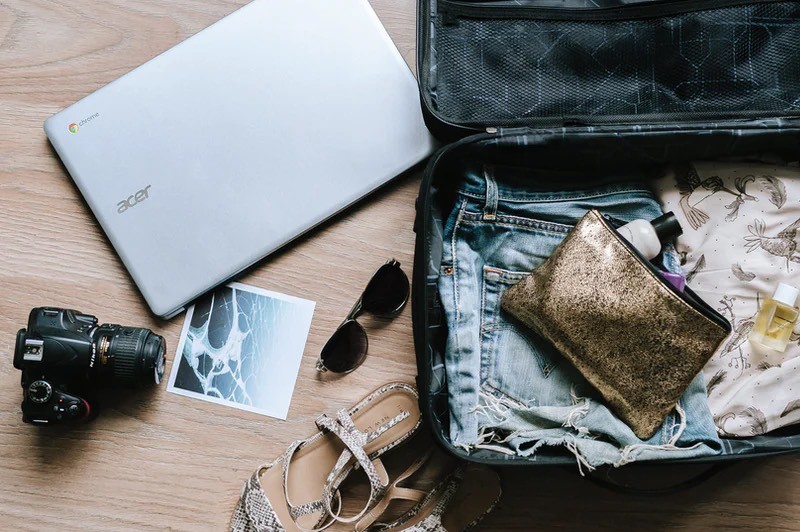Traveling as an au pair can be an exciting adventure, but it comes with its own set of expenses. The cost of an au pair’s journey can vary significantly depending on several factors, such as their nationality and the destination country. It’s crucial to have a comprehensive understanding of these factors to ensure a smooth and well-planned au pair experience.
Au pairs play a crucial role in many families worldwide, providing childcare and often becoming an integral part of the host family’s life. To facilitate this cultural exchange and enriching experience, au pairs travel from their home country to a foreign one. During this process, they encounter travel costs that need to be managed effectively.
The first and foremost consideration for an au pair is to be aware of the regulations and agreements that govern the financial aspects of their travel. These regulations can vary from one country to another and may even depend on the nationality of the au pair. In some instances, certain countries have established legal agreements that dictate the financial responsibility for travel expenses, requiring host parents to fully fund the travel costs for au pairs, regardless of their nationality.


One of the essential aspects of addressing au pair travel costs is open communication between au pairs and host parents. Before making any travel arrangements, it is highly recommended that both parties discuss and agree upon who will be responsible for what expenses. This proactive approach can help prevent misunderstandings or disagreements later on, ensuring that the journey begins on a positive note.
The financial responsibility for travel expenses can vary significantly. In many cases, it is customary for host parents to shoulder a significant portion of these expenses. Host parents often pay for at least half of the travel costs, which can alleviate a substantial financial burden on au pairs. This shared financial responsibility is designed to make the au pair program accessible and beneficial for both parties.
However, there are instances where host parents may be required to cover the entire cost of the travel tickets. These regulations are typically in place to ensure that au pairs, regardless of their nationality, are provided with a fair and equitable opportunity to participate in the program. It’s essential for both au pairs and host parents to be aware of the specific regulations in their host country to avoid any misunderstandings or financial disputes.
Setting a realistic budget is the first step in effective financial planning. Create a comprehensive budget that outlines all potential expenses, including visa fees, travel insurance, and daily living costs. Having a well-defined budget will help you make informed decisions and manage your finances effectively.
When searching for flights, consider exploring various airlines and booking platforms to find the most cost-effective options. Sometimes, flying on less popular days of the week or during off-peak seasons can lead to significant savings. Additionally, be on the lookout for special discounts or deals on flights to further reduce travel costs.


While living with your host family is typically covered as part of the au pair arrangement, there may be instances where you need temporary accommodation, such as during transit. Look for affordable and safe lodging options, such as hostels or budget hotels, to keep costs in check.
Be mindful of currency exchange rates and transaction fees when managing your finances in a foreign country. It’s a good idea to open a local bank account to reduce these fees and have a more convenient way to access your funds. Many au pair programs provide guidance on setting up local bank accounts and managing finances in the host country.
Investing in comprehensive travel insurance is essential to protect yourself from unexpected medical expenses or travel disruptions. Make sure to review the policy and understand what is covered before purchasing it. Travel insurance can provide peace of mind and financial security during your time as an au pair.
Additionally, consider seeking financial support and advice from au pair agencies, support networks, or online communities. These resources can offer valuable insights and share their experiences to help you make informed financial decisions. Many au pair agencies also provide guidance on managing finances, including advice on budgeting and accessing support if needed.


In conclusion, the cost of au pair travel can vary significantly, depending on factors such as nationality and the host country’s regulations. Clear communication between au pairs and host parents is key to addressing travel expenses and avoiding potential conflicts. By setting a realistic budget and exploring cost-saving options, au pairs can make their journey more manageable and financially sustainable.
Additionally, staying informed about legal regulations and agreements in the host country is crucial to ensure compliance with the required financial arrangements. Ultimately, proper planning and budgeting can make the au pair experience a rewarding and financially feasible adventure, allowing you to focus on the cultural exchange and personal growth opportunities it offers.